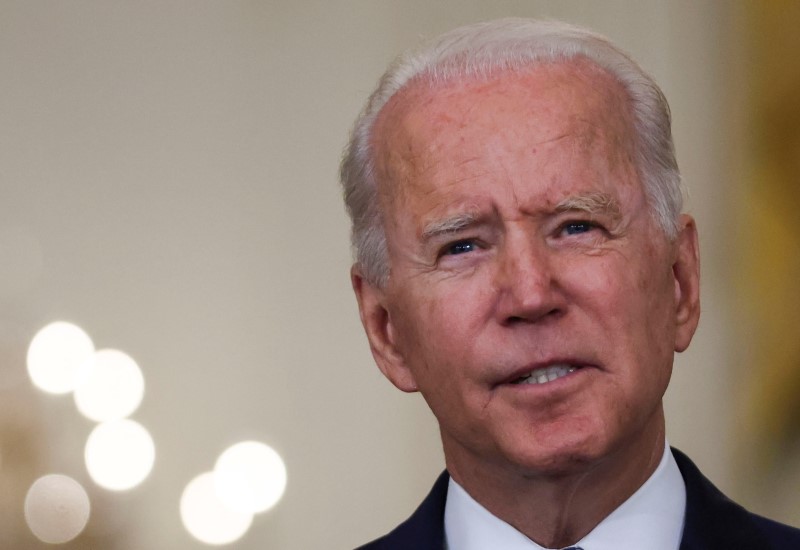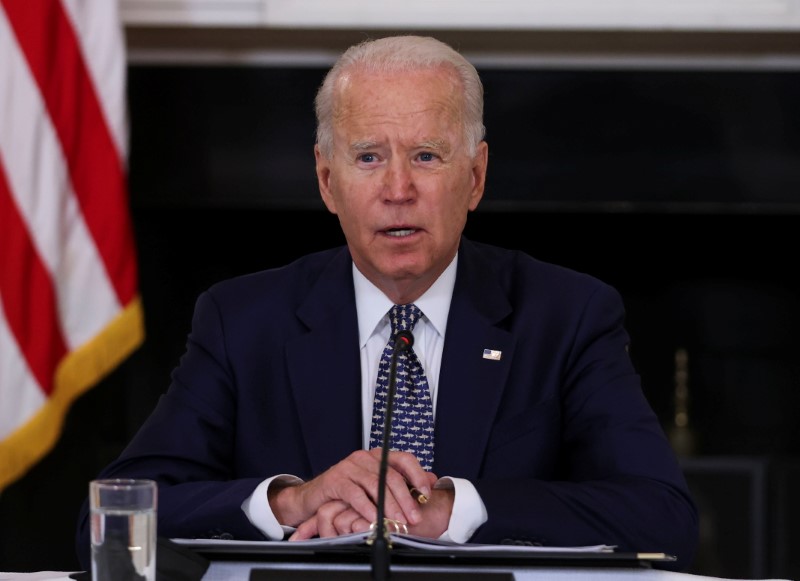WASHINGTON (Reuters) -U.S. President Joe Biden, fresh off his first major bipartisan victory, is turning to larger efforts aimed at shoring up faith in democracy and convening a summit with other world leaders later this year.
Biden, who took office in January after a hotly contested election still criticized by his rival Donald Trump and his supporters, will gather heads of state from other democratic nations for a virtual summit on Dec. 9 and 10, the White House said on Wednesday.
The summit will also include representatives of "civil society, philanthropy, and the private sector," who will make commitments for a year of action, with a follow-up, in-person session one year later, it said in a statement.
"The challenge of our time is to demonstrate that democracies can deliver by improving the lives of their own people and by addressing the greatest problems facing the wider world," it said.
Those attending will discuss "the challenges facing democracy so as to collectively strengthen the foundation for democratic renewal," focusing on "defending against authoritarianism, fighting corruption, and promoting respect for human rights," it added.
Biden has been heavily vested in the $1 trillion infrastructure bill that passed the Senate on Tuesday with 19 Republicans backing the Democratic president's plan, saying the bipartisan effort shows the United States can tackle big issues together and compete with countries like China, which have divergent political systems.
A record 155 million Americans cast ballots in the November 2020 election that Biden won by more than seven million votes. Multiple courts, state election officials and Trump's own government rejected Trump's false claims of election fraud, but Trump and his supporters have persisted in pushing baseless conspiracy theories, with his supporters leading a deadly Jan. 6 assault on the U.S. Capitol.
Western democracies cast a wary eye at the United States under Trump, who tore up traditional alliances and praised stronger ties with Russia and China. Other democratic nations have also seen their systems fray.

At home, Biden and fellow Democrats must also contend with voting rights that advocates say have been weakened by a number of blows since they were put in place during the Civil rights era of the 1960s, including two major Supreme Court rulings and new efforts under Republican-led state legislatures.
Republicans have balked at proposed legislation in Congress, arguing it would give the federal government too much control in local elections.
